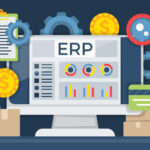As businesses encounter growing demands to adhere to Environmental, Social and Governance (ESG) criteria the financial and operational environments are shifting swiftly. One notable domain impacted by these shifts is invoicing. Given the stricter ESG reporting mandates companies need to adjust their invoicing methods to stay compliant, streamlined and open. This article will delve into the influence of ESG rules, on invoicing the obstacles that emerge and actionable measures companies can implement to synchronize their invoicing tactics with sustainability aims.
Understanding ESG Reporting Requirements
Reporting ESG (Environmental Social Governance) entails revealing how an organization influences factors, like carbon emissions and resource usage as well as social aspects such as employee relationships and ethical business conduct. There’s a growing call from regulators and stakeholders for transparency, in these aspects to guarantee that businesses are practicing sustainability.
It has evolved from an effort, to an obligation in various areas due to the implementation of stricter regulations to hold companies responsible for their sustainability efforts effectively aligned with a broader worldwide trend towards sustainable progress that evaluates businesses not just based solely upon financial achievements but also taking into account their roles in environmental preservation and social equality, alongside ethical leadership practices. Businesses are realizing that providing ESG reports is crucial, to gaining trust from investors and complying with requirements in today’s environmentally conscious market landscape where sustainability is a significant factor, in staying ahead of the competition.
Why ESG Reporting Affects E-Invoicing
ESGs may appear unrelated to procedures such as invoicing at glance; however; they share a close connection. Businesses striving to lower their impact must evaluate the effectiveness of all operations. Including invoicing. Furthermore; adhering to ESG standards typically requires data reporting and accountability; underscoring the importance of the einvoicing system, for maintaining trustworthy ESG information.
Moreover electronic invoicing is vital for the sustainability of supply chains. Is an aspect of ESG metrics criteria By digitizing invoicing procedures businesses can oversee the environmental consequences of their supply chains more efficiently by monitoring elements such, as resource use waste creation and carbon emissions linked to each transaction This enhanced transparency not only aids companies to adhere to ESG guidelines but also empowers them to utilize data based insights to enhance their processes cut expenses and encourage eco friendly strategies throughout their complete value chain.
The Convergence of Sustainability and Digital Transformation
Switching to invoicing is part of a movement towards digital innovation that aligns nicely with sustainability goals. Moving away from paper invoices towards options helps lower paper usage and energy consumption linked to printing and mailing processes. Yet to effectively include ESG (Environmental and Social Governance) factors into invoicing practices companies need to move beyond digitizing and focus on enhancing the process, for accurate data management and regulatory compliance.
By using cloud based invoicing systems companies can. Decrease their environmental impact instantly while also obtaining information about additional sustainable measures like energy use and waste minimization. This switch does not aid in meeting ESG standards. Also promotes enduring sustainability objectives by offering ongoing visibility and chances, for enhancing processes.
Challenges Companies Face with ESG-Compliant E-Invoicing
- Data Collection and Management
Meeting ESG standards typically involves keeping tabs on information concerning billing procedures, like resource utilization and energy usage levels can be a task due to the variety of data origins and varying quality of data, across different sources.
- Regulatory Compliance
In regions, around the world with regulations on environmental and social governance it can be challenging for companies operating across borders to comply effectively with these varying requirements.It is crucial for businesses to make sure that their e invoicing systems align with the standards of each jurisdiction to prevent facing any penalties.
- Technological Integration
Integrating ESG data into e processes usually involves combining tech systems, like accounting software and ESG reporting tools with e invoicing platforms can pose challenges for businesses—especially smaller ones, with limited IT resources.
How ESG Regulations Shape E-Invoicing Practices
ESl regulations have impacted the way e invoicing is being implemented leading companies to adjust their practices accordingly:
- Incorporate ESG Metrics into Invoice Reporting
When it comes to ESG reporting requirements, for businesses they might have to incorporate measurements in their invoices like disclosing the carbon footprint associated with the services rendered or detailing the consequences of the products delivered.
- Ensure Data Transparency and Traceability
Ensuring traceable data is essential, for meeting ESG requirements Companies need to guarantee that their electronic invoicing systems can offer a log of every transaction with details related to ESG measures
- Implement Sustainability Features in E-Invoicing Platforms
Some companies are adding sustainability elements to their invoicing platforms by including automated calculations, for the eco friendliness of invoices or incorporating choices for carbon offsetting.
Best Practices for Aligning E-Invoicing with ESG Requirements
- Standardize Data Reporting Formats
Using the format for reporting data helps maintain uniformity throughout e transactions and simplifies the process of gathering information for ESG reports.Tap, into a platform that seamlessly connects with your financial and accounting systems.
- Leverage Automation for Compliance
Automating the gathering of data and processing invoices doesn’t just improve productivity it also helps with compliance efforts too! By using automated workflows we can make sure that invoices adhere to requirements, by identifying any inconsistencies in ESG data.
- Integrate ESG Metrics Directly into E-Invoicing Software
Integrating ESG metrics into the e procedure makes it easier to gather data for sustainability reports so companies should opt for e invoicing platforms that come with built in ESG monitoring capabilities.
- Regularly Review and Update E-Invoicing Policies
As ESG regulations continue to develop over time companies need to assess their e-invoicing policies and practices to guarantee ongoing compliance. Conducting audits can pinpoint areas that may benefit from enhancement.
Benefits of Adapting E-Invoicing Processes for ESG Compliance
- Improved Transparency and Trust
By incorporating social governance information into invoicing systems companies can showcase their dedication to sustainable practices thereby fostering trust among clients, investors and other parties involved.
- Operational Efficiency
Automated electronic invoicing systems that are integrated with ESG reporting can decrease the amount of tasks and errors while also resulting ń cost savings that’re quite substantial.
- Enhanced Regulatory Compliance
By incorporating einvoicing practices businesses can stay proactive, about staying compliant, with ESG regulations to steer clear of any fines or penalties that may arise.
- Positive Brand Image and Competitive Advantage
Taking steps towards sustainability can enhance a company’s image. Give it a competitive advantage in the market.
The Future of E-Invoicing in an ESG-Driven World
With the rising importance of ESG reporting the use of e invoicing to support compliant financial procedures is gaining more significance. Businesses should see e invoicing as more, than a tool; it’s also a key element of their ESG efforts. In the coming years we can anticipate e-invoicing systems advancing by integrating sophisticated analytics and AI generated insights that will allow businesses to gain a deeper understanding of how their invoicing methods affect the environment positively or negatively.
These innovative tools won’t just enable companies to track their carbon emissions instantly but also pinpoint areas where they can enhance efficiency. For instance, by cutting back on energy use or opting for eco-friendly suppliers..By combining these features corporations can turn invoicing into a proactive instrument that fosters ongoing enhancements to sustainability efforts, positioned as a crucial facilitator of broader ESG initiatives.
Conclusion
Here at Advintek we recognize the challenges involved with merging ESG adherence into invoicing procedures.Our state of the art solutions are tailored to aid companies align their invoicing methods, with sustainability objectives.By utilizing our einvoicing system firms can streamline compliance processes enrich data precision and smoothly incorporate ESG indicators into their financial operations.
Our platform provides a range of customization choices, along with security measures and integration features to make ESG reporting easier for you.We partner with Advintek to guarantee that your e invoicing procedures not just comply, with regulations but also advance your sustainability goals.Explore how we can assist you with transitioning to ESG compliant e invoicing by checking out Advintek.









